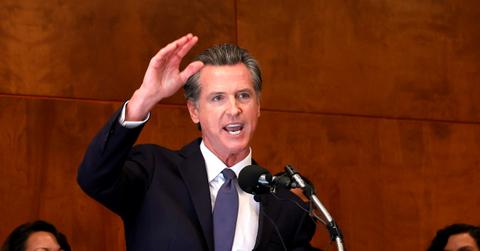California Might Be Doubling Taxes—What to Know Before the Decision
California is contemplating a move that could massively increase tax payments for families and businesses in the state. What's in the bill?
Jan. 18 2022, Published 12:59 p.m. ET
California is considering amending its state constitution in a way that could seriously raise tax payments for residents. The bill proposes a single-payer healthcare system funded by myriad types of tax payments.
Here’s what to know about the proposal, including whether it holds water in the legislative system and how much taxes could increase.
What's California’s proposed constitutional amendment?
According to the California legislature, the state is striving for an ambitious bill that would change how the state’s healthcare system operates. The bill suggests that “comprehensive health care coverage for every resident of California is a right” and a universal single-payer healthcare system would benefit everyone.
How does California plan to pay for its universal healthcare program?
The state says that it will use broad-based revenues to pay for the healthcare program “including existing revenue from government health care programs such as Medi-Cal and Medicare.”
This is in addition to four types of tax raises that are on the table:
Increasing annual excise taxes for qualified businesses to 2.3 percent of the gross receipts minus the first $2 million (up from 1 percent)
Adding payroll tax for employers who pay wages or other compensation to 50 or more resident employees at a rate of 1.25 percent of the total compensation paid
Adding payroll tax for employers who pay wages or other compensation to any resident employees at a rate of 1 percent
Adding a State Personal Income CalCare Tax in marginal rates depending on taxable income for the year
What's the State Personal Income CalCare Tax?
The proposed State Personal Income CalCare Tax would impact wealthy residents more than those in lower-income brackets. For example, people making at least $149,509 but not over $299,508 would pay the minimum amount—a marginal tax of 0.5 percent of the taxable income. Meanwhile, people making $2,484,121 and above would pay the maximum amount or 2.5 percent of the taxable income.
Will California’s universal healthcare bill and higher taxes pass?
California residents and business owners have some qualms with the universal healthcare proposal. A big issue is the tax cliff that the proposal could create for small businesses. With a cutoff of 49 employees, it could prevent small businesses from expanding in order to avoid a tax bill on payroll.
Some wealthier residents aren't happy with the proposal, although people in lower-income brackets aren't impacted the same way. Next up is opposition at the state Capitol, followed by resident voters who will have to approve the tax changes.
As of Jan. 12, CalCare passed the Assembly Health Committee, which is the first step in a long and arduous journey. Despite obstacles, experts say that universal healthcare will pay for itself in the end. According to The Los Angeles Times, “The plan includes long-term care coverage and services for senior citizens and disabled people, and would remove barriers based on a patient’s immigration status.”
Meanwhile, California Governor Gavin Newsom faces reelection this fall. The tax and healthcare proposal will be a major factor in the upcoming race.


